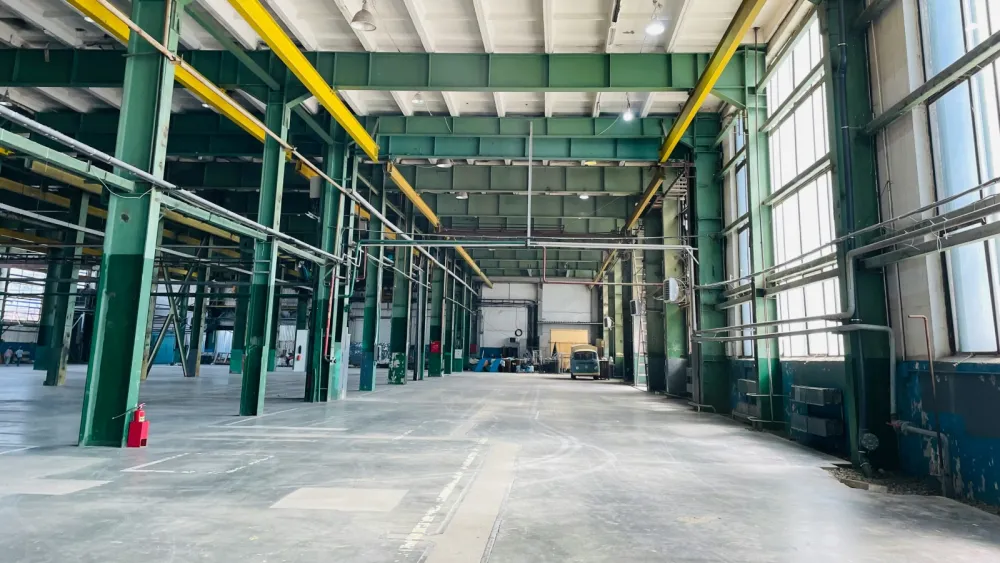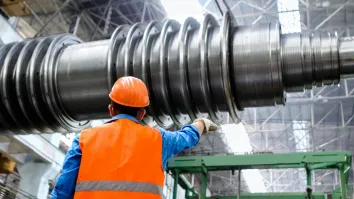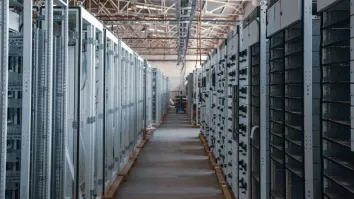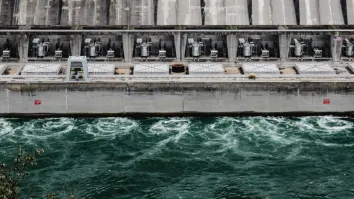
Vietnam's nuclear implosion: Is the final decision a giant leap backwards?
Southeast Asia’s most developed nuclear energy market has decided to give nuclear the flick.
The Vietnamese Parliament has just voted on a decision made by the policy-controlling government to scrap plans to construct both Russian and Japanese nuclear power plants in Ninh Thuan province. The plants were slated to have been operational starting by 2030 and to have delivered 4,000 MW of power to the rapidly developing and industrialising socialist republic of over 90 million people.
The reasons provided for this curious decision are economic. In statement considering only the short-term, leader of State-run Electricity of Vietnam Group, Duong Quang Thanh, says, “Currently, power demand growth is not high, while domestically generated and imported sources of energy are sufficient for social-economic development. In particular, prices of imported sources of energy are much cheaper now.”
A backward step toward dirty fuel sources
In terms of the economics of electricity generation, coal is not an attractive option, especially when the environmental pollutions and carbon emissions are taken into consideration. Coal, gas, and oil may be cheap in the short-term, but fossil fuel prices are highly unpredictable and will rise in the mid- to long term. As Dr Victor Nian of the Energy Studies Institute at the National University of Singapore suggests, “When the prices return to less attractive levels, it may become too late [for Vietnam] to turn back to nuclear power plant construction because of the heavy investment commitment.” Conversely, nuclear energy is not subjected to the level of price fluctuations as compared to fossil fuels. Furthermore, replacing coal-fired power plants with nuclear power plants several years down the road when fossil fuel prices correct upwardly will also mean wastage in investments and assets. “So what Vietnam is actually scrapping is a long-term low carbon base-load energy source that is competitive when measured by levelised cost of electricity,” adds Nian.
World and regional nuclear industry leaders interviewed exclusively by Nuclear Forum.Asia, almost unanimously agree that this decision is a backward step for Vietnam and may even lead to negative externalities for the region, environmental and otherwise.
Dr Agneta Rising, Director-General of the World Nuclear Association, pulls few punches in highlighting the negative consequences of this decision on the Vietnamese people, especially considering the population’s critical stage of rapid economic industrialisation and demand for energy. “Vietnam is heavily reliant on fossil fuels for its electricity supplies and demand for electricity continues to grow. The decision not to add nuclear energy to its generation mix at this stage will mean Vietnam will become more dependent on fossil fuels, worsening Vietnam’s air pollution, increasing greenhouse gas emissions and weakening its security of supply,” says Rising.
History will take its own course
Other experts add that Vietnam can always reverse its decision in the future. Former Secretary-General of ASEAN Ambassador Ong Keng Yong, Executive Deputy Chairman of the S. Rajaratnam School of International Studies at Singapore’s Nanyang Technological University suggests that the decision is near-sighted, in that the policy is geared toward short-term cost savings, “Without the benefit of nuclear power for civilian use, Vietnam will rely more on traditional sources of energy, particularly oil, coal and hydropower. It will probably buy hydropower from its neighbour Laos. Currently, the Vietnamese authorities view these sources as more competitively priced than nuclear energy. However, if there is rising demand [and cost] for power in the future and severe environmental concerns posed by coal-fired power stations, nuclear power may be considered again by the Vietnamese government in the future.”
Is this the end of nuclear power plans for Vietnam? “Likely not,” muses Professor Olli Heinonen, of the Harvard Kennedy School of Government’s Belfer Center for Science and International Affairs. “Vietnam cannot in the long term cover its growing energy needs with imports of coal and oil. We will see if construction of smaller modular reactors, enters to the picture. If Vietnam continues with the plans to build a new 15 MW research reactor, the government will still have a nuclear option in its future energy mix.”
It may eventuate that Vietnam needs to reverse its decision, and as such all is not lost for nuclear stakeholders in Vietnam or the region. Analysts generally agree that from a long-term economic and environmental point of view, Vietnam should continue to the plan for new builds. “Other considerations remain important,” says Nian. “Qualified domestic engineers and experts in nuclear energy, public perception, social acceptance, and political will.”
According to an IEA projection in 2015, coal may overtake gas demand by 2020 with a small fraction of nuclear energy entering post 2025. With the strong interest in coal, there is a danger for ASEAN members to turn that small fraction of nuclear energy into coal.
However, the decision on nuclear energy is beyond mere economic and environmental considerations. “While we can say that danger for ASEAN members to follow suit exist, it may still be too early to judge how other members will respond,” adds Nian. “When measured by the levelised cost of electricity, nuclear energy remains cost competitive. Investment in nuclear energy is economically viable.”
It remains to be seen if the latest move by Vietnam will adversely affect the nuclear energy plans of other ASEAN countries. Nuclear proposals in Malaysia, Philippines, Indonesia and Thailand are heavily influenced to local public opinion and scrutiny, and public acceptance is important before making a national decision on NPP construction. “At the minimum,” concludes Ambassador Ong, “it would appear that Vietnamese officials will be more active in promoting the culture of safeguards, safety and security in developing nuclear energy in the existing ASEAN mechanisms such as ASEANTOM and ASEAN Nuclear Energy Cooperation Subsector Network.”
In any case, for the region’s supporters of nuclear and those on the side of promotion of this clean energy source, not all is lost. Ambassador Ong believes, “the decision can still be reversed by the government in Hanoi because it has stated that it will only cancel the construction of the Ninh Thuan plants. Nonetheless, the authorities will continue ‘promoting’ nuclear power.” What this means – promoting nuclear while cancelling viable and forward-thinking projects - in practical and real terms, remains to be seen.


















 Advertise
Advertise







